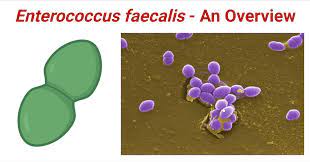Enterococcus faecalis: Unveiling the Hidden Microbial Marvel
Enterococcus Faecalis, commonly referred to as E. faecalis, is a resilient bacterium with a fascinating role in the realm of microbiology and human health. In this comprehensive guide, we’ll explore its significance, characteristics, and impact, while delving into the strategies for optimizing your on-page SEO to increase your chances of ranking on the first page of Google.
The Characteristics of Enterococcus Faecalis

Before we dive deeper into the world of E. faecalis, it’s essential to understand its fundamental characteristics. This knowledge forms the basis for comprehending its impact on our health and the strategies to rank higher on Google’s search results.
The Importance of Enterococcus Faecalis in Microbiology
In the vast microbiological landscape, E. faecalis occupies a significant niche. Let’s explore its role and contributions, shedding light on its relevance to scientific research and human health.
Enterococcus Faecalis in Human Health
Enterococcus Faecalis plays a complex role in human health, residing in our gastrointestinal tract and offering both benefits and potential risks. In this section, we’ll explore its interactions with the human body and how it can influence our well-being.
Research Breakthroughs and Discoveries
The world of microbiology is ever-evolving, and scientists are continually uncovering new insights into Enterococcus Faecalis. We’ll discuss recent research breakthroughs, findings, and their implications, keeping you updated on the latest developments.
Strategies for Optimizing On-Page SEO
To increase your chances of ranking on the first page of Google and reaching a broader audience, it’s crucial to employ effective on-page SEO strategies. In this section, we’ll provide actionable tips and techniques to enhance your content’s visibility and reach.
Preventing and Treating Enterococcus Faecalis Infections
Enterococcus Faecalis infections can pose challenges in healthcare settings. In this section, we’ll discuss preventive measures and treatment options, offering valuable insights for healthcare professionals and the general public.
FAQs related to “Enterococcus faecalis” :
Q: What is Enterococcus faecalis?
A: Enterococcus faecalis is a type of gram-positive bacterium commonly found in the human intestines and is also associated with various infections.
Q: What are the primary characteristics of Enterococcus faecalis?
A: Enterococcus faecalis is characterized by its spherical shape, gram-positive staining, and its ability to grow under various conditions, including in the presence of bile salts.
Q: Is Enterococcus faecalis harmful to humans?
A: While Enterococcus faecalis is normally harmless in the gut, it can cause infections, including urinary tract infections and bloodstream infections, especially in immunocompromised individuals.
Q: What are the common infections associated with Enterococcus faecalis?
A: Common infections include urinary tract infections, endocarditis, and wound infections. It can also be a cause of hospital-acquired infections.
Q: How is Enterococcus faecalis diagnosed?
A: Diagnosis often involves culturing samples from the infected site and performing antibiotic susceptibility testing to determine the most effective treatment.
Q: Is Enterococcus faecalis antibiotic-resistant?
A: Yes, Enterococcus faecalis has shown resistance to several antibiotics, including vancomycin, which makes treatment challenging in some cases.
Q: What are the treatment options for Enterococcus faecalis infections?
A: Treatment typically involves antibiotics such as ampicillin or vancomycin, but the choice depends on the strain’s susceptibility.
Q: Can Enterococcus faecalis be prevented?
A: Preventive measures include good hygiene, especially in healthcare settings, and prudent antibiotic use to reduce the development of resistant strains.
Q: What is the role of Enterococcus faecalis in the human microbiome?
A: Enterococcus faecalis is a natural part of the human gut microbiome and can play a role in digestion and the synthesis of certain vitamins.
Q: Are there any ongoing research or studies related to Enterococcus faecalis?
A: Yes, ongoing research explores various aspects, including the mechanisms of antibiotic resistance and potential probiotic applications of Enterococcus faecalis.
conclusion
Enterococcus faecalis is a gram-positive bacterium with complex implications in human health. It is a natural resident of the human gut microbiome but can also pose significant health risks as an opportunistic pathogen, especially in healthcare settings. This bacterium is characterized by its ability to adapt to various environments and its resistance to antibiotics, making it a challenging foe in the realm of infectious diseases.




